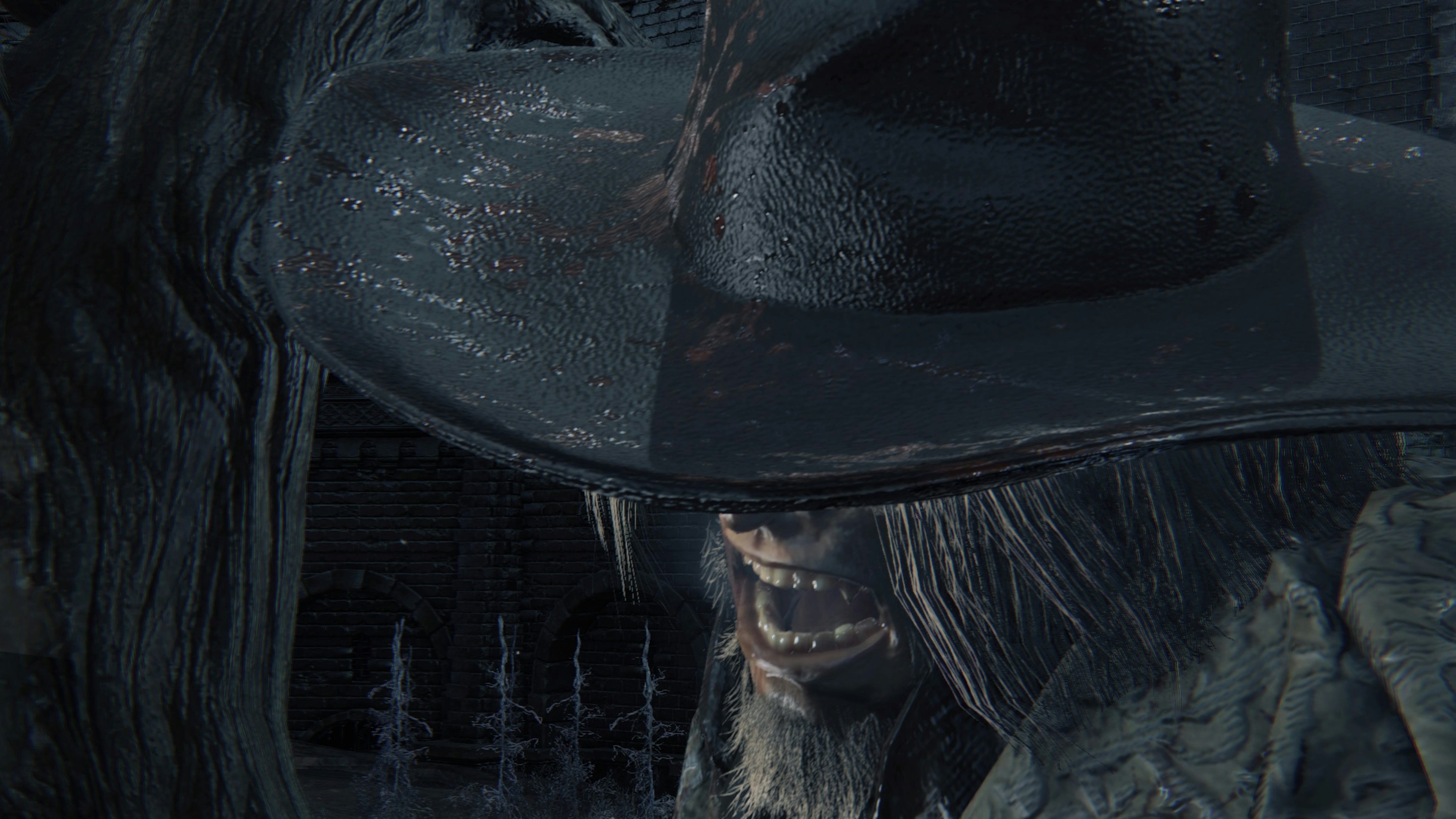
You enter the ancient city of Yharnam suddenly. It’s an awakening, like the moment you feel consciousness hit you as a child. It’s the night of the hunt, when men and beasts roam the streets, out for each other’s blood. There’s power in that blood; it stems from the paleblood of the Great Ones, tentacled Lovecraftian beings that once lived in Yharnam and still haunt the world. The Great Ones all long for children of their own. Unfortunately, conceiving is hard for them, and when their children perish, they seek surrogates.
Nine years ago, FromSoftware’s PS4 exclusive Bloodborne was my entry into the studio’s dark and difficult fantasy worlds. The beast-filled streets of Yharnam gush with blood and Victorian London influences. As someone who grew up in the Big Smoke, I enjoyed all the jokes about how England is actually just like Yharnam — plagued by torch-wielding denizens who would stab you as soon as look at you. But it wasn’t until a recent playthrough that I realized my childhood was closer to Bloodborne than the jests suggested.
For those of you who haven’t entered the dark world of Bloodborne, it’s a third-person action RPG where you play as a hunter, a stranger who has come to Yharnam to learn its mystical secrets. Three factions work in the city: the Healing Church, the Hunters, and the Byrgenwerth Scholars. The Church and Scholars study the blood and bodies of the Great Ones, while the Hunters cleanse the streets of those driven mad by their discoveries. You enter the city on the night of the hunt, and as you explore the surface and the catacombs below, you fight terrible monsters and uncover horrifying secrets kept by the three organizations.
Major spoilers ahead if you haven’t played.
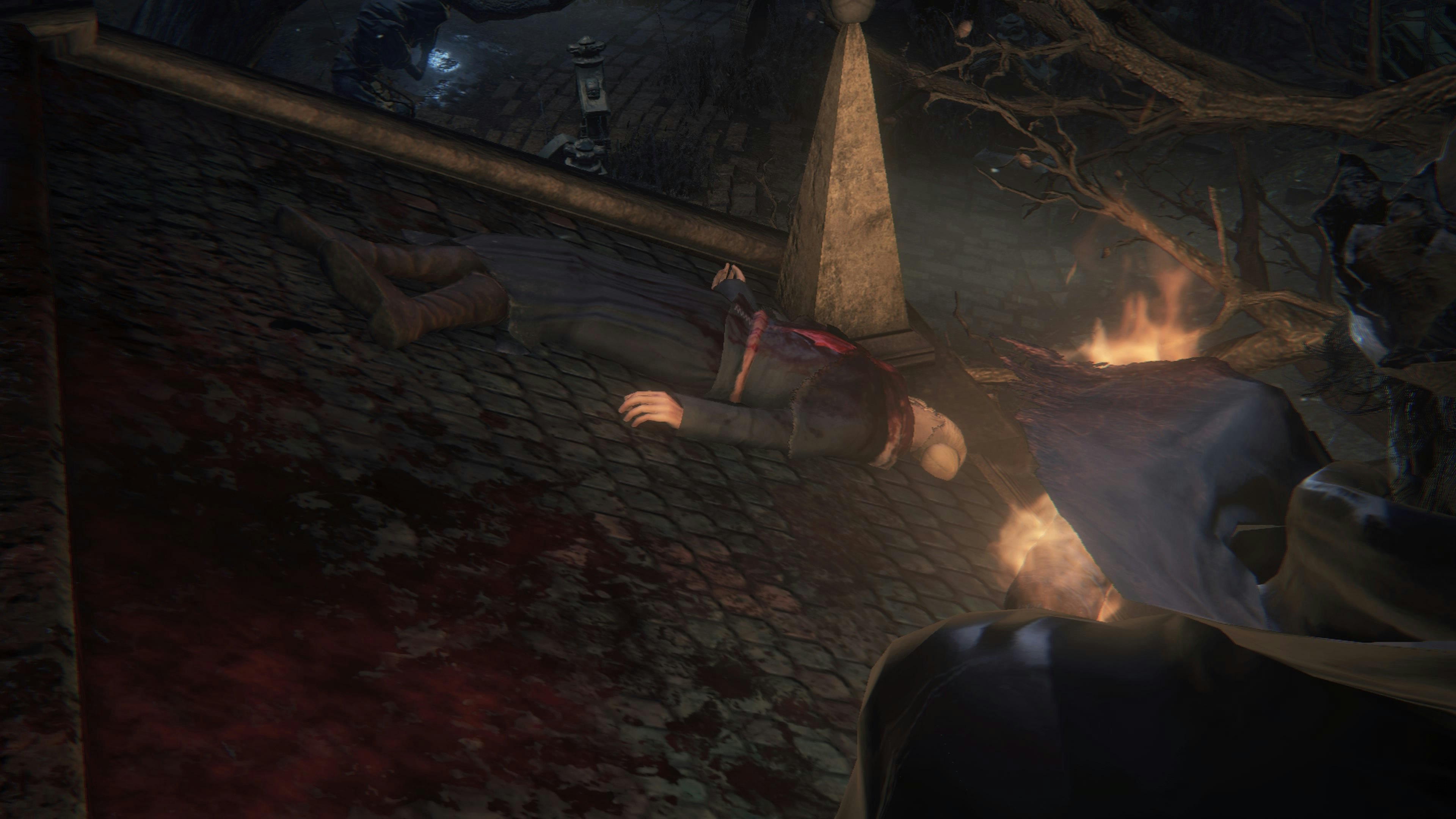
Bloodborne is a game about many things, chief among them motherhood. Yharnam’s abandoned mothers are everywhere, from the Pthumerian Queen to the prostitute Arianna to the slain wife of Father Gascoigne. It’s speculated by fans that both the Pthumerian Queen and Arianna were mysteriously impregnated by the Great One Oedon when he wanted offspring of his own, even though he’s currently nowhere to be found.
When thinking of Oedon, described as having no physical form, I couldn’t help but compare him to my own biological father, who abandoned my mum and I when we returned to London from Egypt. Raising a child alone is tough, especially for a woman moving to a country with no job or place to live.
Firstly, there’s the difficulty of birth itself to contend with. My mum was in labor with me for 54 hours, eventually needing a C-section. Queen Yharnam’s white dress is stained red, and we know her baby, Mergot, was taken from her. Could the blood indicate she had had a C-section as well, maybe one she didn’t want?
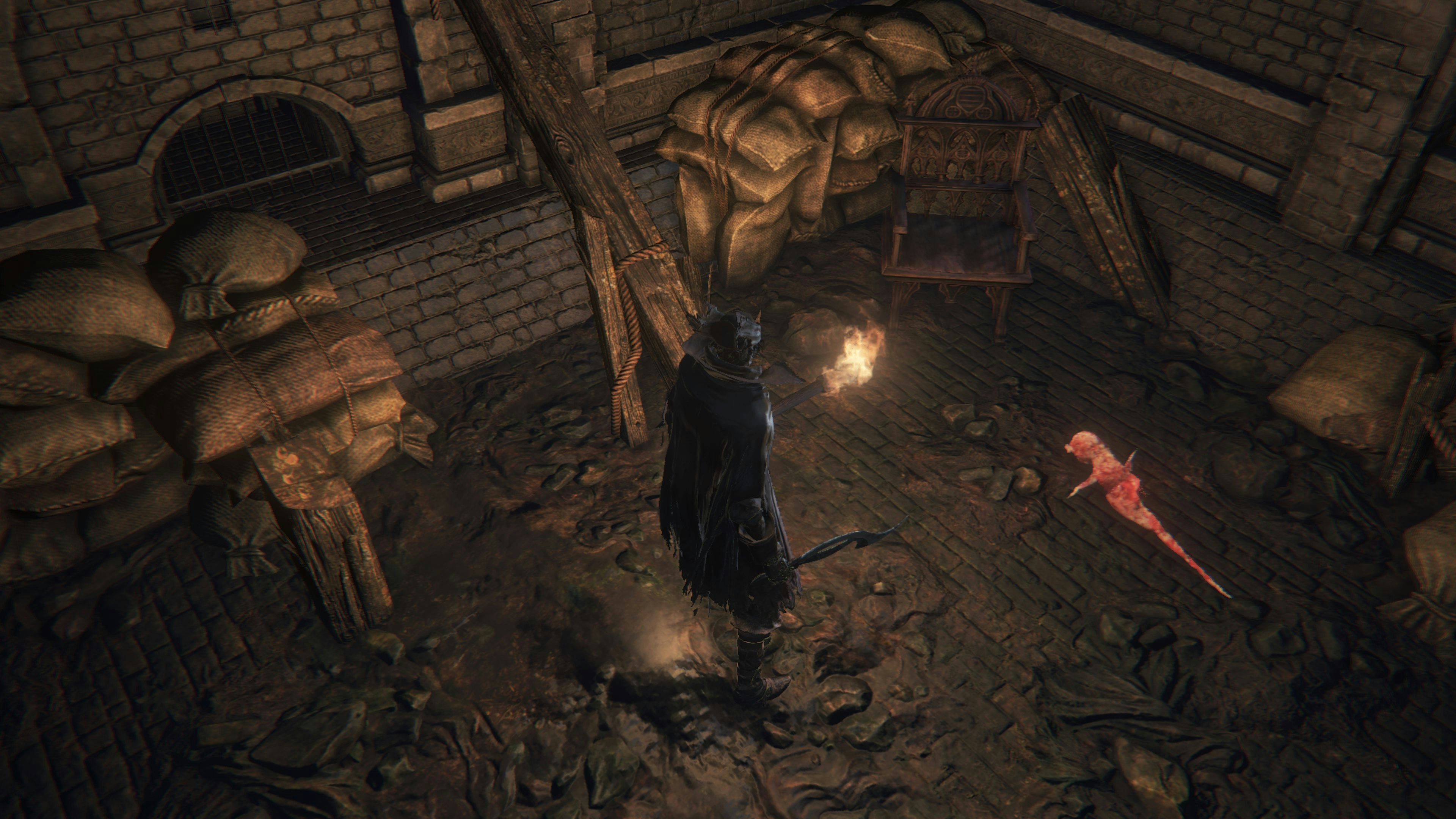
Queen Yharnam remains deep within the chalice dungeons, waiting to be slain by the player, the cries of her unborn baby ringing out throughout the fight. The kind-hearted non-player-character Iosefka turns from a healer into an experiment, and you can either put her down or leave her to her transformation. Arianna perishes if you get rid of her baby, an act you’ll have to carry out if you want to unlock Bloodborne’s true ending.
The only women who come out of everything relatively unscathed are Eileen the Crow and Annalise, Queen of the Vilebloods. These women each reject the hunt in their own way. Eileen becomes a hunter of blooddrunk hunters, eliminating them before they can fully turn into beasts, and Annalise remains safe in Cairnhurst castle, ruler of the Vilebloods. They can’t survive within the status quo, so they live outside it.
My mum never remarried, nor did she have any other kids. She got a career in IT with a big consultancy firm even though she’d always dreamed of “being barefoot and babied in the kitchen.” Unfortunately, for that she’d have to rely on a man. She knew she could support us herself when it came to it, and that became the most important thing.
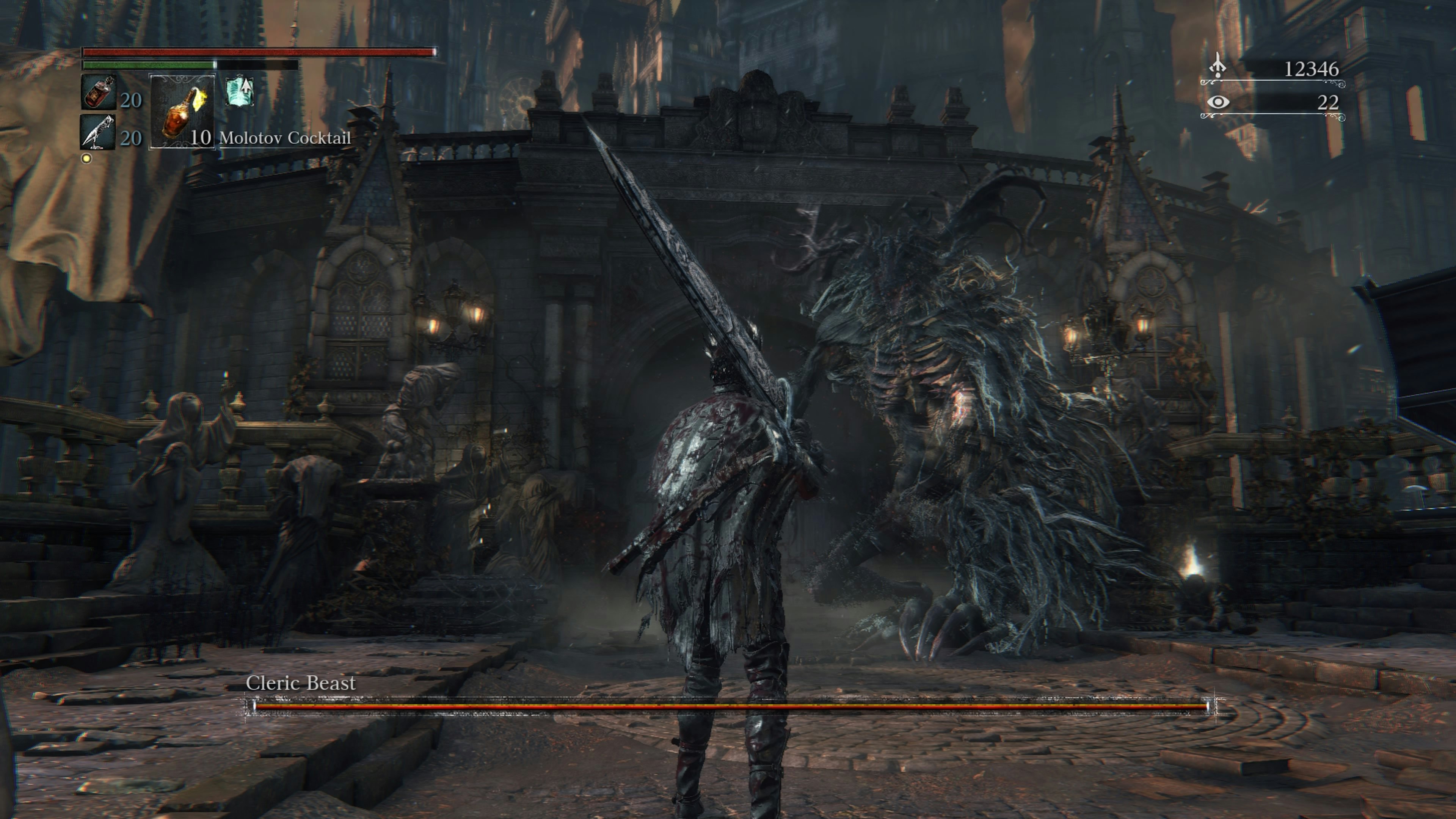
I’m sure the hunters in Bloodborne who engorge on blood and eventually turn into beasts didn’t all change suddenly. Gascoigne doesn’t physically transform until halfway through his boss fight. Perhaps he started by shouting at the dog for no reason, passing out on the sofa and impossible to wake up, swerving his car after he stormed out the house, forgetting to pick me up from school.
My mum didn’t technically raise me alone, but it often feels like she did. My stepdad grew more emotionally absent the older I got, and while I didn’t mind being left alone in my room to play video games and watch movies while my mum was at work, I didn’t realize that his multi-hour afternoon naps were actually the result of his alcoholism, not just tiredness. It’s hard to spot when you grow up alongside it, but just like the blood in Bloodborne, alcoholism transforms people into something base and scary.
As you explore Yharnam and witness more horrifying and unexplainable phenomena, you gain insight. Gain enough and you can see the world for what it truly is, before the Blood Moon rises and its light exposes the lesser amygdala clinging to Yharnam’s buildings.
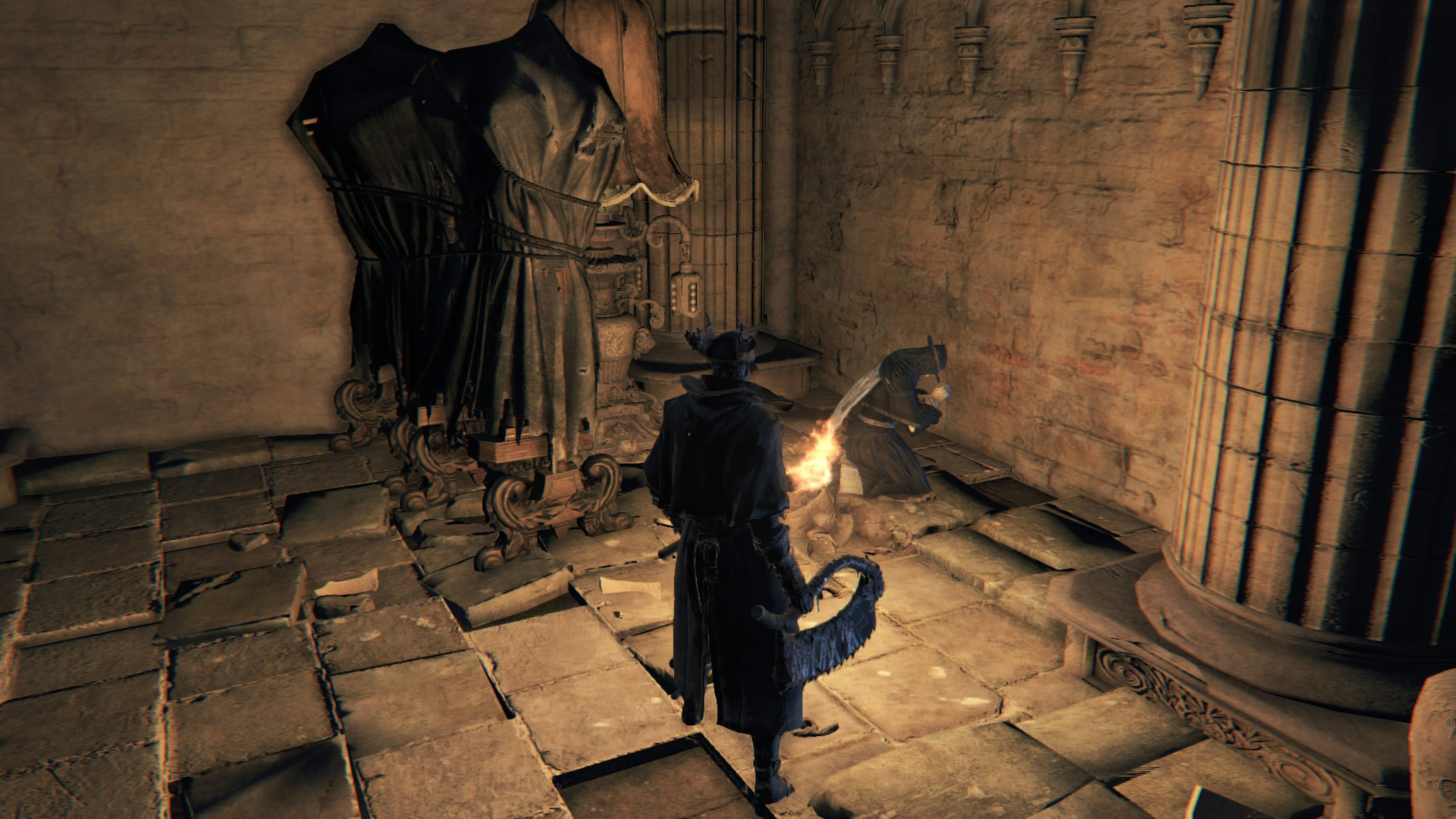
My mum and stepdad split up when I was 15, and I figured out a lot sooner that her new partner was an alcoholic as well. All the signs were there and I had the insight to spot them now. He turned from a witty, thoughtful man into a bitter and manipulative one. I could see it, recognize it, but I was powerless — I wasn’t a hunter.
In Bloodborne, as hunters gain insight they become more susceptible to the devastating frenzy debilitation. The things we experience have a lasting impact, and as I’ve gotten older I’ve had to deal with my own vices and mental health struggles. Depression, anxiety, addiction. I fear the beast I see lurking in my future, ever-present in my past.
In Bloodborne’s true ending, the hunter dispatches their mentor, Gehrman, and transcends the dream to become an infant Great One. They return to a child-like state, raised by an adoptive mother, the doll. I can’t look to the father figures in my life to break the cycle they threw me in — I often say they taught me how not to be a man and my mum taught me everything else. I don’t want to be like them, or Gascoigne, or any of the beasts that remain. Instead, I look to my mother.







